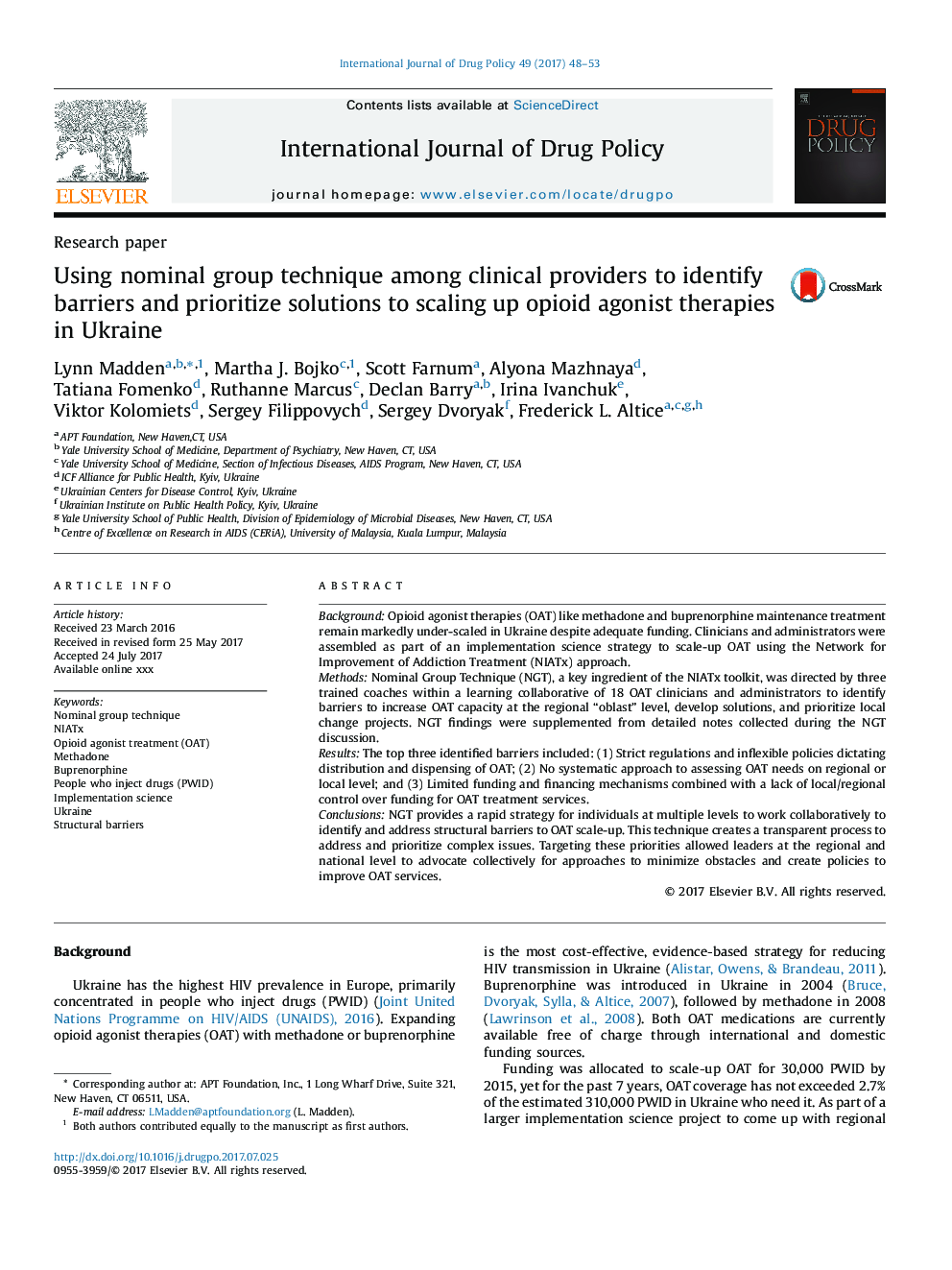| Article ID | Journal | Published Year | Pages | File Type |
|---|---|---|---|---|
| 5120703 | International Journal of Drug Policy | 2017 | 6 Pages |
BackgroundOpioid agonist therapies (OAT) like methadone and buprenorphine maintenance treatment remain markedly under-scaled in Ukraine despite adequate funding. Clinicians and administrators were assembled as part of an implementation science strategy to scale-up OAT using the Network for Improvement of Addiction Treatment (NIATx) approach.MethodsNominal Group Technique (NGT), a key ingredient of the NIATx toolkit, was directed by three trained coaches within a learning collaborative of 18 OAT clinicians and administrators to identify barriers to increase OAT capacity at the regional “oblast” level, develop solutions, and prioritize local change projects. NGT findings were supplemented from detailed notes collected during the NGT discussion.ResultsThe top three identified barriers included: (1) Strict regulations and inflexible policies dictating distribution and dispensing of OAT; (2) No systematic approach to assessing OAT needs on regional or local level; and (3) Limited funding and financing mechanisms combined with a lack of local/regional control over funding for OAT treatment services.ConclusionsNGT provides a rapid strategy for individuals at multiple levels to work collaboratively to identify and address structural barriers to OAT scale-up. This technique creates a transparent process to address and prioritize complex issues. Targeting these priorities allowed leaders at the regional and national level to advocate collectively for approaches to minimize obstacles and create policies to improve OAT services.
